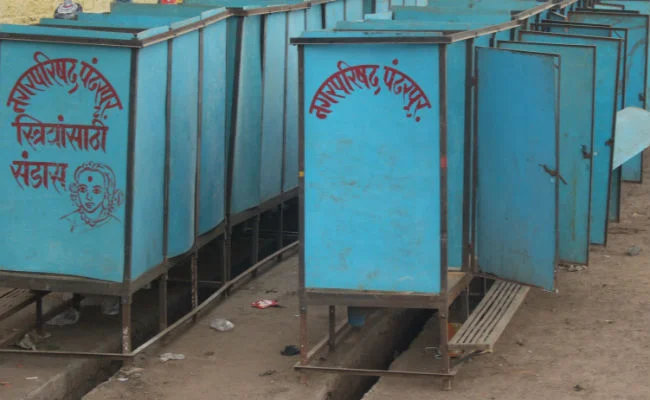This article was written by Robyn Fischer, WaterAid.
Instead of singing about the 12 Days of Christmas this year, I’m singing a slightly different tune. One known as the #12DaysofCOP and how world leaders adopted an agreement to combat climate change that—for the first time in history—includes achievable, meaningful commitments to reduce harmful emissions and help communities adapt to climate change.
(Okay, full disclosure, I actually celebrate Hanukkah and I definitely do not sing, but I earnestly wished for world leaders to take strong actions against climate change. And, oh, what a great gift leaders gave to the world.)
Around the world, people celebrated this momentous occasion even more than I’ve been celebrating my Hanukkah gifts. And for good reason: Almost 200 countries agreed to reduce harmful greenhouse emissions and mitigate the effects of climate change. Climate change – so often seen in the form of intense floods, severe droughts sea level rise or other water-related forms – is finally being seriously addressed! Amazing.
‘Adaptation’ Is the Gift We’ve All Been Waiting For
At the Conference of the Parties (COP21), world leaders committed to change the way our industrial economies operate. On behalf of each of us, they also pledged to reduce carbon emissions and address the serious problem of climate variability. It’s a landmark climate agreement that makes a pretty darn good complement to the Global Goals adopted earlier this year.
(Remember those goals? They’re the ones that will be used in every corner of the globe to transform how community development can be achieved over the course of the next fifteen years, and specifically achieve a world where everyone, everywhere has access to clean water and toilets.) Together, these global commitments will help guide every country’s growth, and create a more equitable world for all of us.
As if that weren’t celebration-worthy enough, one of the really exciting things about the climate agreement is that it includes that magic little word: ‘adaptation’. That means that countries have to prepare for the inevitable impacts of climate change, and build communities that can withstand severe weather effects. Now for the first time, there’s a framework that focuses on planning and implementing strategies that will reduce risk and vulnerability to climate change, while also making an explicit commitment to dedicating financial resources to climate resilient development. We know that the devastating impacts of climate change will continue and could worsen, so investing in adaptation measures is key for countries to survive and thrive. World leaders got that!
As countries move toward implementing the agreement and shifting away from ‘business as usual,’ water, toilets and hygiene must be recognized as a critical adaptation tool for communities to be resilient to climate change. Without that, we won’t be able to effectively address global poverty, or achieve the Global Goals.

Let me give you one example: constructing good toilets will reduce the spread of human waste during floods, which in turn will reduce the spread of life threatening diseases such as cholera. Funding and implementing adaptation projects, like these could help poorer communities be more resilient and not suffer the financial ramifications of having to rebuild after disasters strike. The money that would be spent on rebuilding could then be used for improved education and health services and allow communities to lift themselves out of poverty. Awesome.
Gifts Are Great, But We’ve Got a Job to Do
Admittedly, I was one of the gleeful individuals taking to the streets to celebrate the fact that for the first time ever, the world is taking action against climate change. And this great news comes months after world leaders adopted the Global Goals to eradicate poverty and create a fairer world. As an American, and as a global citizen, I now look to the United States to be a leader and advance both global commitments.
As a signatory to both the Climate Agreement and the Global Goals, the US government has an important role to play in advocating for adaptation projects to be put into action, and for steps towards sustainable development to be taken in a way that has real impact. Most recently Secretary of State, John Kerry, pledged $860 million to be allocated to developing countries for adaptation projects, doubling prior US financial commitments.
This shows an increased US effort to help countries mobilize their resources and plan for the impacts of climate change, and a reaffirmed commitment to uphold the Global Goals. As a global leader, the US now has the opportunity—the responsibility, even—to go further by making sure that water, sanitation and hygiene are an integral part of all of those ambitious plans.
All in all, it’s been a landmark year for the fight against extreme poverty, and for the fight against the global water and sanitation crisis. We’ve got work to do in this New Year, but for now, it’s time to be merry and spread cheer for the #12DaysofCOP our leaders gave to us: hope for the future.